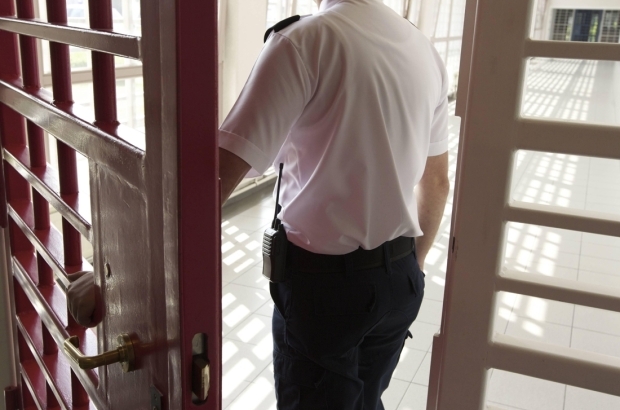- Daily & Weekly newsletters
- Buy & download The Bulletin
- Comment on our articles
'Deplorable conditions': Belgium’s prison staff hold 24-hour strike
Belgian prison staff walked out on strike for 24 hours on Friday as part of a joint trade union front, citing overcrowding and "deplorable conditions" for prisoners.
Unions are highlighting the sharp increase in the number of prisoners and inmates, as well as the number of cases of assault against staff.
The total population of Belgium’s prisons is around 12,000, which is 1,300 more than the planned capacity.
The unions believe that the solutions proposed by the government are “still not sufficient two years later” and said they have to work in “unacceptable conditions” while the prisoners live in deplorable ones.
“Overcrowding is causing prisons to explode, with inhumane living conditions for our inmates,” said Eddy De Smedt of the VSOA union.
De Smedt said that the desire to strike is very high, particularly because of the attacks on staff.
“We need to make the job more attractive in order to get more staff into the institutions, as staff shortages are also a problem,” said De Smedt.
“As a result of this shortage, the backlog of leave is constantly growing, so much so that it currently stands at 600,000 days.”
At the same time, the Human Rights League (LDH) has warned that disease is spreading in prisons – hepatitis C in particular.
Not all prisoners benefit from the same treatment for hepatitis C, according to the LDH, which has condemned discrimination between prisoners who are serving their sentence and those held on remand. The latter group is ineligible for screening and treatment services for the disease.
The prison population is around seven times more affected by hepatitis C than the general population and prison is a particularly high-risk environment for transmission, given the poor hygiene conditions, the sharing of equipment between inmates and the widespread use of drugs.
Réseau Hépatite C-Bruxelles has been providing specialist hepatology consultations in Brussels prisons for the past two years but recently decided to suspend its activities in Haren and Saint-Gilles to protest against unequal treatment of prisoners.
“According to the protocol decided by the prison health care directorate, only sentenced prisoners have de facto access to screening and treatment services, and people on remand are not entitled to them,” the organisation said.
That protocol also provides for prisoners “who use psychotropic substances” to be excluded from this care “even though there is no medical justification for making the prescription of antiviral treatments conditional on abstinence”.
LDH said that the reason given for the discrimination is budgetary grounds, “even though the official reason given is the length of detention, which should be sufficient to allow the treatment to be taken in full while in prison”.
The organisation argues that if prisoners are released before the end of their treatment, the treatment could be continued safely on the outside with the support of external services and provided that the prison medical service is involved in ensuring continuity of care.



















